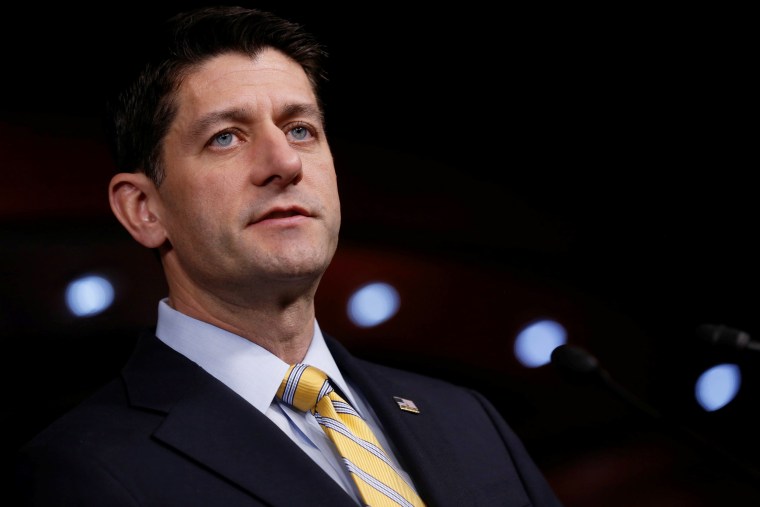The backlash is coming from inside the House.
Even before Republican leadership unveiled the American Health Care Act, intended as the GOP's Obamacare replacement, key voices within the party rebelled against a draft bill that circulated among lobbyists. Now that the long-awaited bill is here, intra-party opposition has complicated efforts to easily pass the measure that repeals and replaces the Affordable Care Act.
But there is no singular reason for Republicans to oppose their party's bill. Conservative lawmakers have several sets of concerns, while the moderates are opposed for completely different reasons, showing the difficulty of bringing a diverse Republican conference together to make "repeal and replace" a reality.
To make sense of the chorus of dissenters, here is a breakdown of who is saying what and why.
The Conservatives
The most conservative members of the House and the Senate who favor a small government have been the most vocal in their opposition. They have been holding news conferences and the Trump administration is actively trying to work with them to ensure they come on board. But the differences between their vision for health care and the one presented are vast.
Many want a full repeal of the Affordable Care Act, which this bill doesn't do. Barring that, their concerns about the AHCA are as follows:
Medicaid: Conservatives, especially those in the House Freedom Caucus, which consists of about 40 members of the House, don’t like that the Medicaid expansion stays in place until 2020, a timeline that they say is too long. They want the Medicaid expansion to end immediately.
In addition, they want states to have complete control of Medicaid, which would come in the form of a block grant — a lump sum of money to the states — to determine how to implement their Medicaid program. The GOP bill implements a federally run formula that provides funding for Medicaid based on the state’s population.
Tax Credits: Tea Party-minded lawmakers are opposed to a central component of the GOP plan that gives age-based tax credits in advance to help people purchase health insurance. They say this is just another government subsidy creating a new entitlement program and that there is no difference between the tax credits and the subsidies currently offered by Obamacare.
Insurance Regulations: While this sounds wonky, it has real-life ramifications. Many of the regulations placed on insurance companies won’t be repealed in this bill, not because of ideological support of them but because of procedural shackles in the Senate.
Those regulations that will stay in the bill include a requirement that insurance companies cover certain things, including maternity and preventative care. Another regulation that stays is that insurance companies can charge older people more than younger people — under Obamacare, the ratio is up to three times more, while the GOP bill allows for charging up to five times more.
A third regulation that will stay, which is publicly popular but considered a symptom of a heavy-handed government by conservatives, is that insurance companies have to insure people with preexisting conditions.
The Moderates
Moderate Republicans, many of them from swing districts or states, have a separate set of concerns regarding the bill.
Medicaid: Moderates are concerned that the Medicaid changes are too harsh, the opposite reason conservatives are opposed to the Medicaid provisions. While the bill keeps the Medicaid expansion in place until 2020, it immediately freezes the program and doesn’t allow new enrollees.
They also have concerns with the per capita limits that will go into effect after 2020 because it is likely to reduce the number of people in the program.
Planned Parenthood: The GOP bill eliminates funding for Planned Parenthood for one year, a move that concerns some moderates, especially those from rural states where the organization provides access to health care for women who might not otherwise receive it.
Tax Credits: The tax credits for people to purchase insurance aren't indexed for geography, concerning some members where the cost of health insurance is disproportionately high, including Sen. Lisa Murkowski, R-Alaska.
"We're looking at what very high-cost states are up against with this proposal and when you factor it in we're losing like 50 to 75 percent in subsidies that we've got now," Murkowski said.

